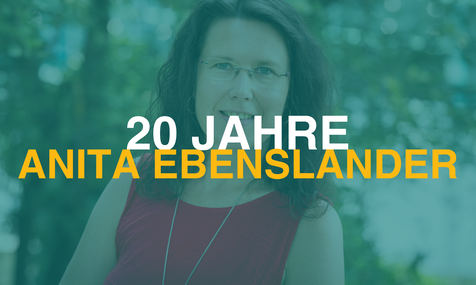Coalition agreement with few environmental and energy issues: Six pages for the future of the world
The year is 2018, and these are the adventures of the (T)spaceship Germany on its way into the near future. In the next three and a half years, a GroKo will once again be in charge. This coalition of three election losers has already determined the course of the hurtling part of the lurching battlestar Europe for the last four years.
Five months have now almost passed since the "sovereign", the electorate, cast their votes. Individuals have almost forgotten who they voted for and for whom. After the self-satisfied election winner, a male black and white photo model, initially wanted to govern at all costs, but in the end "not wrong", the three real election losers came together after all to forge a new GroKo.
According to today's polls, the three would no longer even have an "absolute" majority, but be that as it may: after several weeks of sounding out and talking, a 177-page document emerged. Every voter and schoolchild can now read the 8366 lines: This is what the CDU, SPD and CSU want to do together to create "a new departure for Europe, a new dynamic for Germany, a new cohesion for our country". At least that is the headline above the draft treaty."We are committed to taking greater account of the interests of developing countries," it says. However, this does not apply to environmental policy, but to "international financial and tax policy, sustainable financing mechanisms and the establishment of effective and fair tax systems".
An "open and fair trade policy that benefits everyone" should also aim for "sustainability and justice" - but above all "growth". What does this have to do with the "guiding principle of German policy, the Global Sustainability Strategy Agenda 2030"? Mhmm.
The forest squared - or what exactly is the "Charter for Wood 2.0"? Of course, forestry policy must also be "sustainable", but above all it must be economically viable. How this fits in with the "principle of sustainability", which the potential grand coalition partners want to "fully observe" and "take effective measures to stop the loss of species, make land use more environmentally friendly, better protect water and soil, keep the air cleaner and manage our resources in a cycle", remains unclear.
Because the "sustainability package of measures" once again only includes a "plan for the gradual reduction and termination of coal-fired power generation, including a completion date and the necessary accompanying legal, economic, social and structural policy measures" along with a lot of money - 1.5 billion euros - for the few thousand coal workers. The several hundred thousand green energy workers who lost their modern jobs due to this non-coal phase-out strategy of the last legislative periods, on the other hand, do not appear as recipients of such "financial security" from the coal lobby. It doesn't help much that the negotiators agreed: "We will subject all subsidies - new and old - to constant review in accordance with the subsidy policy guidelines and the principle of sustainability." So far, this has mainly been the case with support for green electricity. And consumers are financing this anyway via the EEG levy.
One small ray of hope, however, is the promise: "We are sticking to the nuclear phase-out: No EU funding for new nuclear power plants. Termination of all state fund investments in nuclear power plants abroad."
The fact that combined heat and power generation (CHP) is making an appearance at all is almost a miracle: it will be "further developed and comprehensively modernized so that it has a future as part of the energy transition. We will make combined heat and power generation less CO2-intensive and more flexible. We want to expand CHP plants and the district heating infrastructure and make them more efficient," it says on page 73. But it also says: "We will make Germany a location for LNG infrastructure." In other words, the natural gas car will now be even more strongly protected. This, in turn, can be found in the just three energy pages of chapter "VI: A successful economy for the prosperity of tomorrow". There was no more room for this on the ten transport pages.
Seven pages must also suffice for the environment and climate in section "XI. Responsible use of our resources". A fifth of this is taken up by nuclear policy, which is actually dead, with just two lines for air pollution control and one less than spatial planning.
However, the importance of the topics should not be measured by the amount of space they take up in the coalition text. After all, just two pages are enough to explain how the government and parliamentary groups want to work. Included is this paragraph, which runs counter to the Basic Law article on the free mandate of members of parliament: "In the Bundestag and in all committees it appoints, the coalition parliamentary groups vote uniformly. This also applies to issues that are not part of the agreed policy. Changing majorities are excluded."
Hopefully at least the other ideas on the 177 pages are constitutional. But will the leadership crew steer the (T)spaceship Germany on the right path into the near future? Great doubts remain.
(Author: Zukunftsenergie-Team Gammel)



